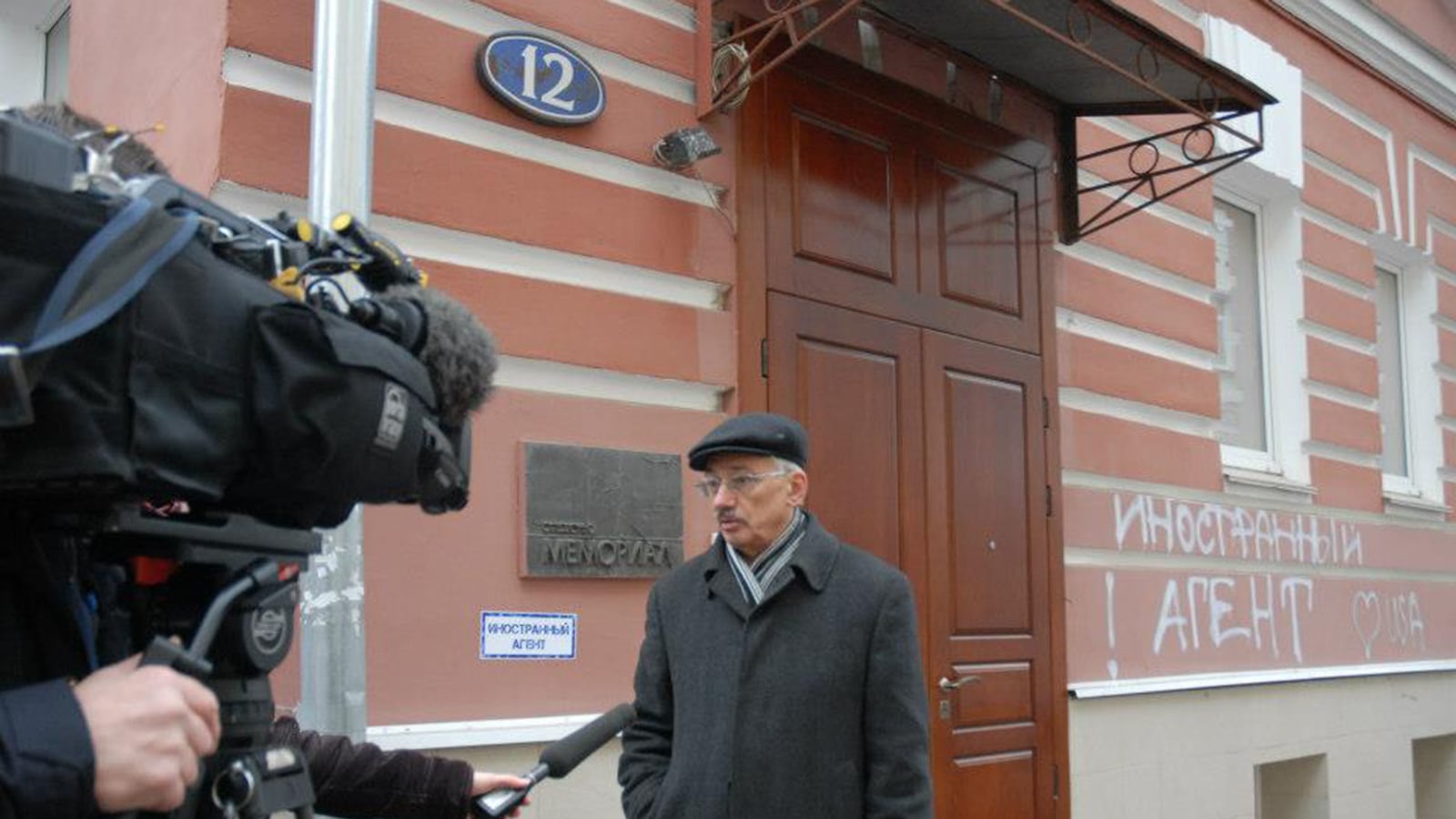MOSCOW—The Russian government is threatening to eliminate Memorial, the most important support network for Russian civil society. On Friday, the ministry of justice filed a suit asking the supreme court “to liquidate”—a very heavy word—the country’s oldest civil-rights organization. A hearing is scheduled for Nov. 13.
If the suit succeeds, it will be a disaster for whatever hope democracy has left in the Russian Federation. Memorial symbolizes Russia’s post-Perestroika effort to rethink the repressive parts of its repressive history and educate Russians to respect human rights, freedoms, and human values. It unites dozens of organizations across the country, acting as the spine of Russia’s rapidly shrinking civil society.
Memorial was founded in 1989 when delegates from 250 civil organizations gathered at the Moscow Aviation Institute to create a volunteer historical and educational society. At that first meeting, activists elected Nobel laureate Andrei Sakharov to be the chair for their society. By 1991 Memorial’s experts, many of them former dissidents, managed to convince the parliament to adopt a law about victims of Stalin’s repression. Since then, Memorial branches around the country have participated in school and university programs while organizing scientific lectures and conferences.
The organization hits the most sensitive nerves in the Kremlin. During the second Chechen war, it documented the seeming disappearance of Russian soldiers in combat zones where the government did not bother to search for them. Recently, it has documented the same thing happening in Ukraine.
Earlier this year, authorities registered Memorial’s Human Rights Center, established in 1991 to organize and coordinate human-rights work, as a “foreign agent”—as if the freedoms it is fighting for are somehow alien to Russia.
Last April, the Memorial Anti-Discrimination Center in St. Petersburg announced its closure under pressure from huge fines. Prosecutors accused the organization not only of failing to register as a foreign agent, but of violating the law by sharing information about discrimination and abuse with foreigners, including the United Nations Committee Against Torture.
Authorities do not like Memorial’s consistent support for what the organization called “political prisoners.” Russia’s law requires “political” nongovernmental groups to register, so by using the term “political” to describe those jailed for what are, in fact, political reasons, Memorial opened itself to accusations of political activity, and therefore of being a political activist group rather than a civil one. The ghost of George Orwell may be conjured too readily and too often, these days, but this truly is Orwellian.
Over the years, Memorial has inspired thousands of students’ papers and collected witness testimonies about the history of repression, the dissident movement, and Gulag prisoners. In Russia, which Freedom House rates as “Not Free,” organizations like Memorial are seen as unpatriotic, especially those supported by foreign grants. Memorial and other NGOs registered against their will as “foreign agents” in the past two years say they acted solemnly in the interests of all Russian citizens.
The role or mission Memorial plays in Russia might be seen as crucial, as it awakened the country’s historical memory, presenting history as an unbroken whole of the past, the present, and the future. But it is not the reality of history, it is the mythology that is being promoted under Russian President Vladimir Putin.
“We help people realize that Russia’s past and present are very much connected—that most probably explains why attacks on Memorial in the past few years grew so frequent and now remind us of a war,” Human Rights Center Chairman Alexander Cherkasov told The Daily Beast.
“Liquidation” is a threat Memorial has heard before, and in the most sinister possible context. In July 2009, a group of unknown individuals abducted the head of Memorial’s branch in Chechnya, Nataly Estemirova, who was one of the most resourceful critics of repressive methods used by Chechen authorities, including torture, abductions, and extrajudicial executions. Her body, riddled with bullets, was found on the side of the road in the neighboring republic of Ingushetia.
The day before the prosecutor filed his complaint against Memorial last week, the NTV television channel told Russian TV viewers in the program Extraordinary Events about masked men arriving in the main office of Memorial, taking four employees hostage and searching the office for evidence of “extremism.”
“The NTV report was a pure lie,” says Cherkasov. “The ministry of justice is not talking about extremism, they blame us for a formal violation because our regional organizations don’t have Memorial in their titles.”
“Authorities think in vertical terms but Memorial was born from the very bottom, as a community of civil groups united by common values,” says Cherkasov. By attacking such an organization, the government cuts itself off from the people. “The practice of destroying civil society was tried by Soviet leaders,” says Cherkasov, “and that led to the dramatic fall of the Soviet Union.”






